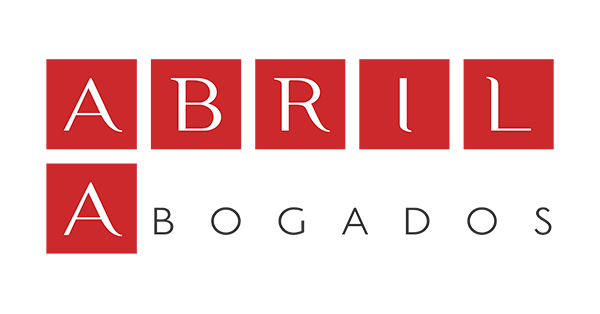 Spain was one of the last countries to transpose European Directive 2015/2436 of 16 December 2015 to approximate the laws of the Member States relating to trademarks. The delay in transposition and the risk of receiving a fine forced an accelerated legislative process, through an emergency procedure that culminated in Royal Decree-Law 23/2018, which not only included trademark law rules, but also other disparate regulations related to rail transport and package travel. The legislative method used for the transposition was therefore not the most appropriate, and perhaps a more careful and thoughtful debate would have led to a better and more complete revision of our current Trademark Law, as it was initially planned.
Spain was one of the last countries to transpose European Directive 2015/2436 of 16 December 2015 to approximate the laws of the Member States relating to trademarks. The delay in transposition and the risk of receiving a fine forced an accelerated legislative process, through an emergency procedure that culminated in Royal Decree-Law 23/2018, which not only included trademark law rules, but also other disparate regulations related to rail transport and package travel. The legislative method used for the transposition was therefore not the most appropriate, and perhaps a more careful and thoughtful debate would have led to a better and more complete revision of our current Trademark Law, as it was initially planned.
Among the changes brought about by the transposition of the aforementioned Directive, one of the most complex and debated has been the assignment of administrative powers to the Spanish Patent and Trademark Office (SPTO) in matters of invalidity and revocation of national trademarks, which will be effective as of January 14th, 2023. To date, this competence has been held by the civil courts, which assumed it by virtue of the Industrial Property Statute of 1929; we are, therefore, on the verge of a very significant change.
It is true that we have the EUIPO as a reference for the new means of revoking trademarks. EUIPO has enjoyed this type of powers since the approval of the Community trademark back in 1995. This administrative revocation system has also been applied in many other non-European countries for years, but with different results. It is necessary to remark that we have had seven years (the period granted by the 2015 Directive) to get ready for the arrival of this moment, but once again in Spain we have rushed the deadlines. It was not until 27 July 2022 that the reform of our procedural law (Organic Law of the Judiciary) was approved, with the aim of ensuring the judicial and administrative conciliation required by the new functions assigned to the SPTO.
This conciliation is absolutely necessary, given that the civil courts continue to have jurisdiction in matters of invalidity and revocation by way of counterclaim, i.e. when a defendant for trademark infringement brings, as part of its defense, an action for invalidity or revocation against the plaintiff’s trademark. Only in this case, the courts can judge the validity of the right
Following the reform of 27 July, 2022 (via Organic Law 7/2022), appeals against final decisions of the SPTO and appeals against rulings of the 1st Instance Commercial Courts will be resolved by the same judicial body, which will be a specific section within the Provincial Courts. This means that the contentious-administrative courts will no longer be competent to review the actions of the SPTO, and that it will be a specialized division of the Appeal Tribunal (civil jurisdiction) that will carry out this supervision. The Tribunal must always take into account the SPTO’s special status as a public administration and its subordination to, among other, the rules of common administrative procedure.
With regard to the administrative procedure of nullity or revocation, the SPTO has reinforced its human and technical resources to deal with the new competences. The reform of the Regulation implementing Trademark Law (made by Royal Decree 306/2019) has come to order the new procedure, which obviously cannot have the same rigor and exhaustiveness as a civil judicial procedure. For example, the SPTO is not compelled to forward to the interested party the allegations presented by the other party if it considers that they do not contain new facts or if it considers that it already has sufficient elements to rule on the dispute.
In any case, the applicant may face the immediate refusal of its request for invalidity or revocation if it does not include the facts, allegations or evidence on which it is based, or if it fails to complete on time her/his application when notified by the SPTO to do it. In addition, the applicant will have to pay the fee established for this kind of new procedure, which amounts to 200 eu, a very low price if compared to EUIPO fees for revocation (630 eu). We ignore the length of these procedures, but the applicable regulation is extremely simple, so it is not likely that we will be faced with long deadlines or complex practices. In fact, the regulation may even cause defenselessness to the holder, given the lack of regulation of means of defense.
It is clear that the European legislator sought to simplify nullity and revocation procedures, and that required to limit the procedural thoroughness of the judicial system to the appeal phase. This allows simpler access to all users to this type of action and will cause an exponential increase of the revocation/nullity attacks. However, this procedural ease should not be confused with a loss of quality and certainty in the decision-making process on such an important issue as the validity of a trademark registration.
Finally, it should be pointed out that although the new procedure does not require the compulsory assistance of a trademark lawyer or an industrial property agent during the administrative phase, the participation of one of these professionals from the first moment it is highly recommended, taking into account that the future appeals will be very limited by the facts and evidence that were initially provided and admitted.

